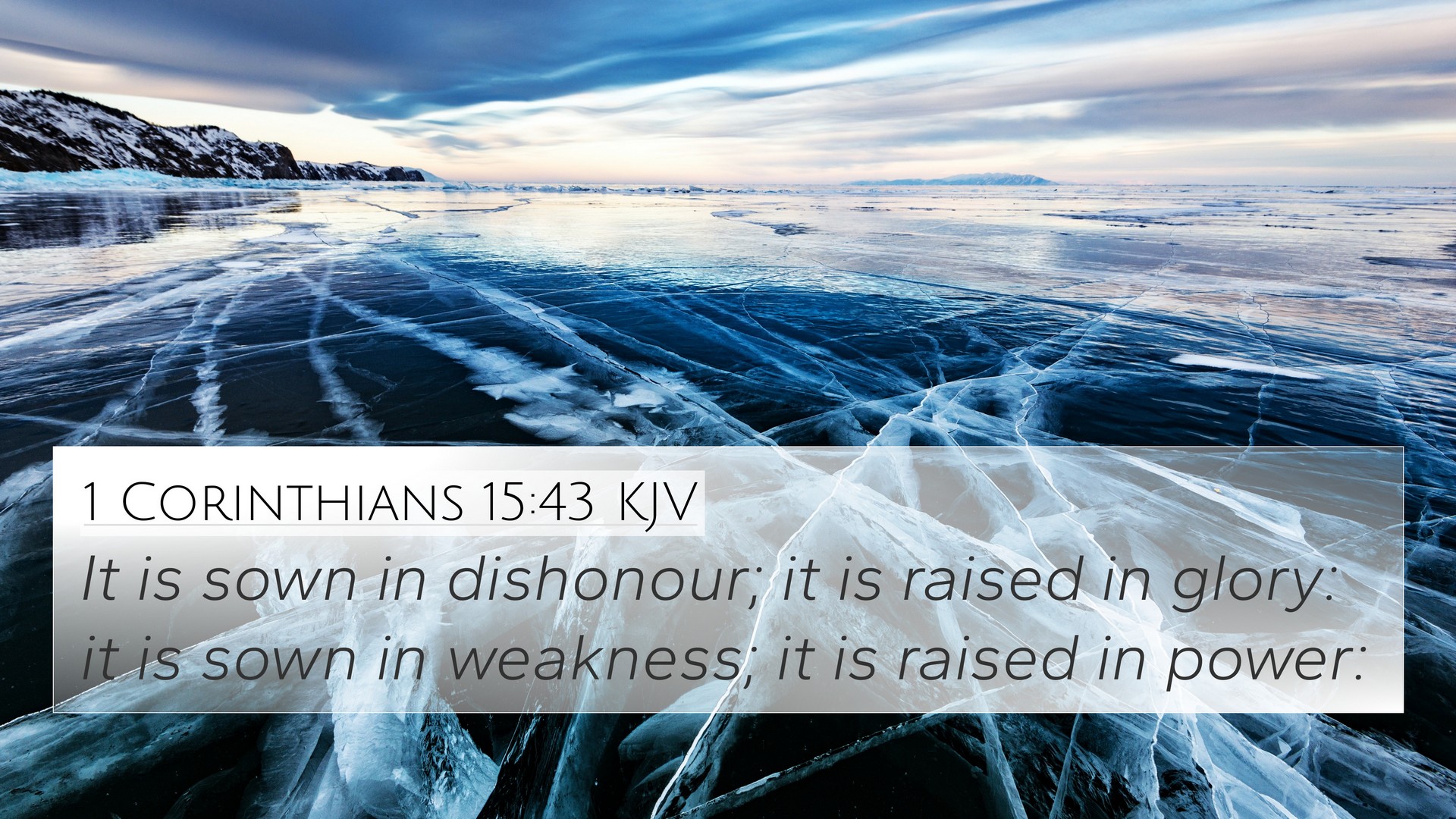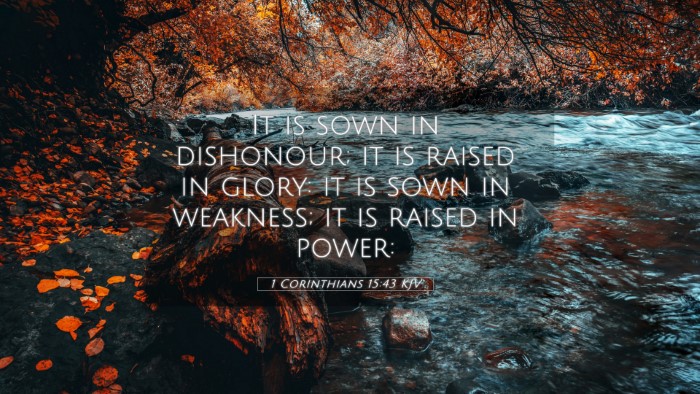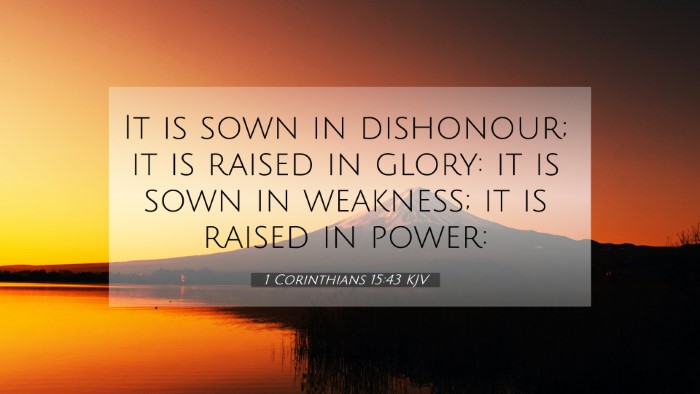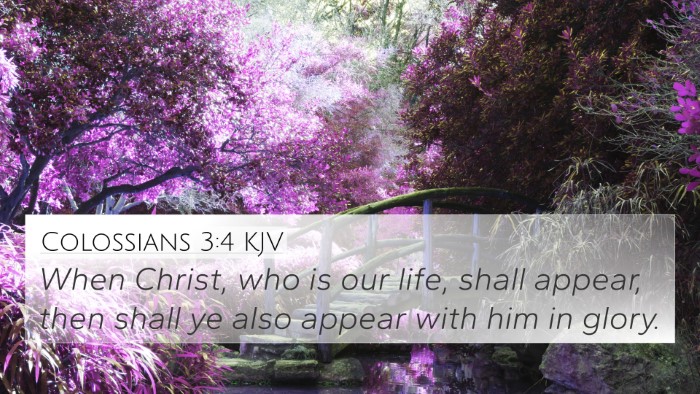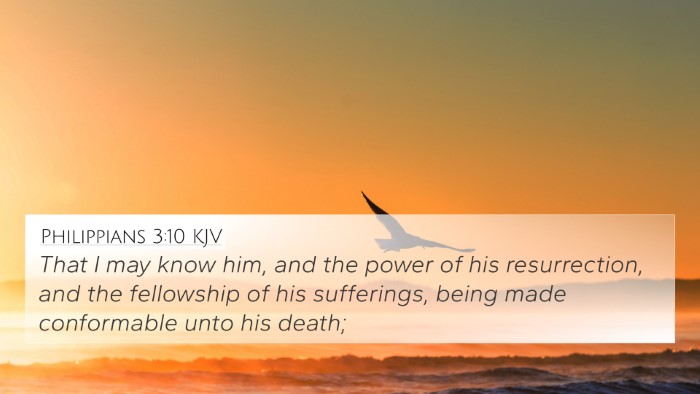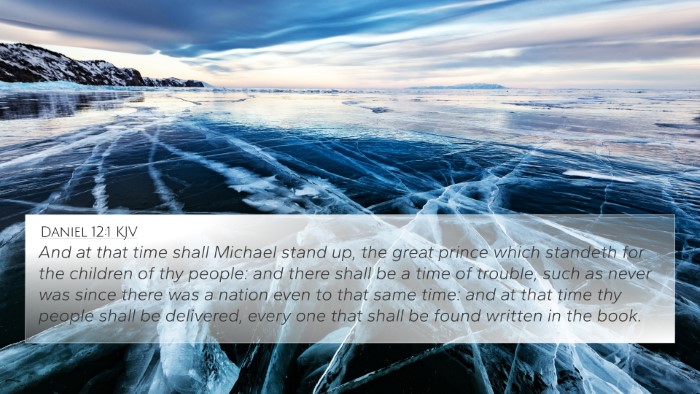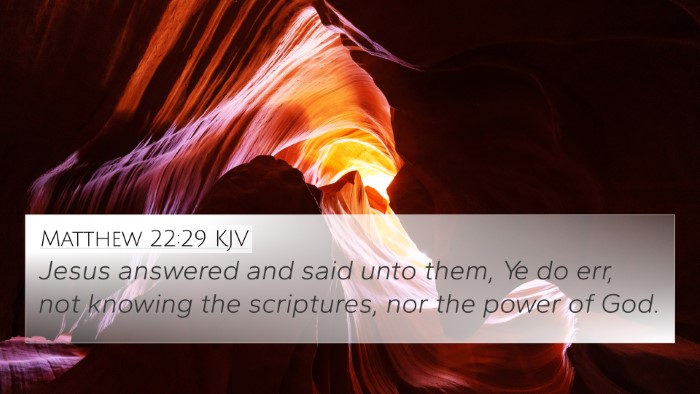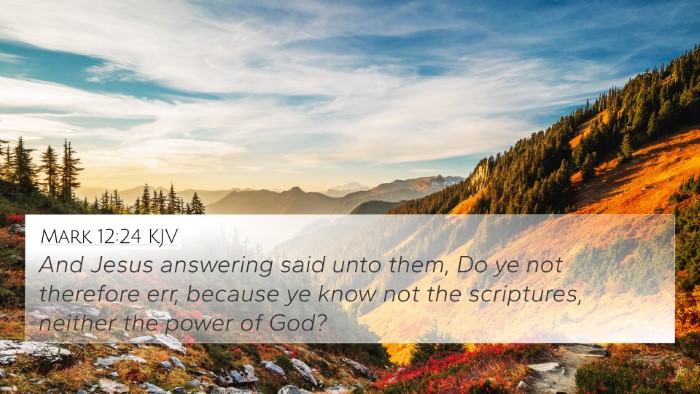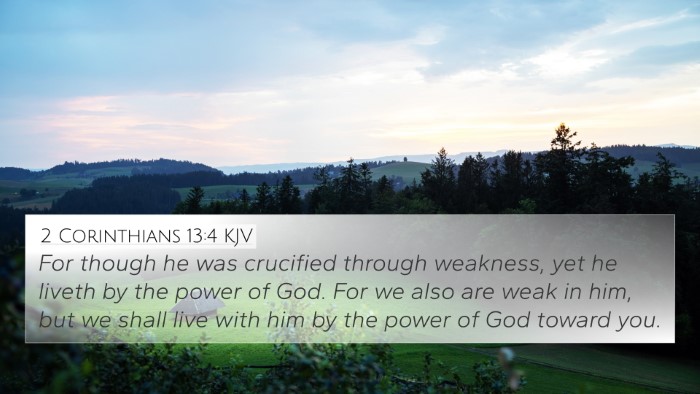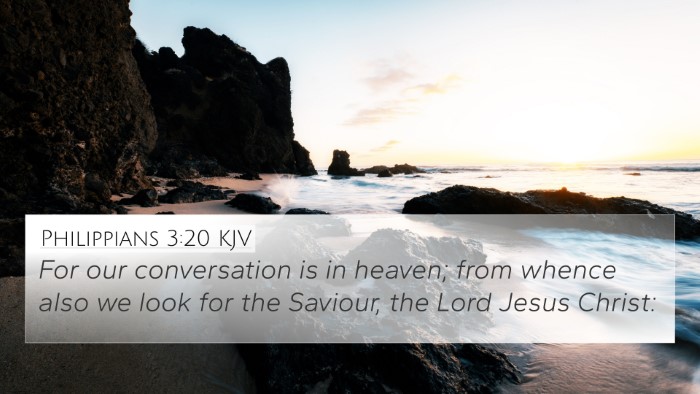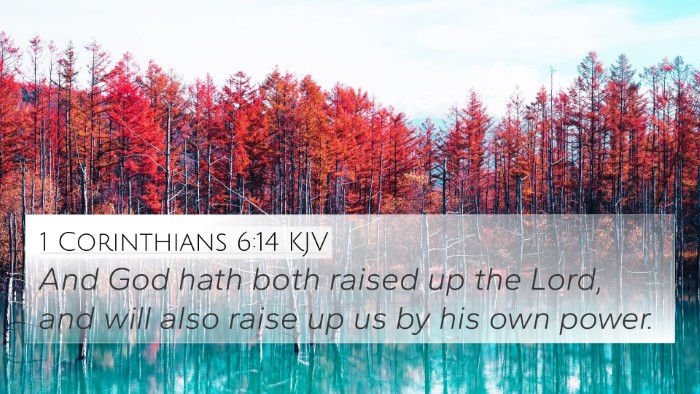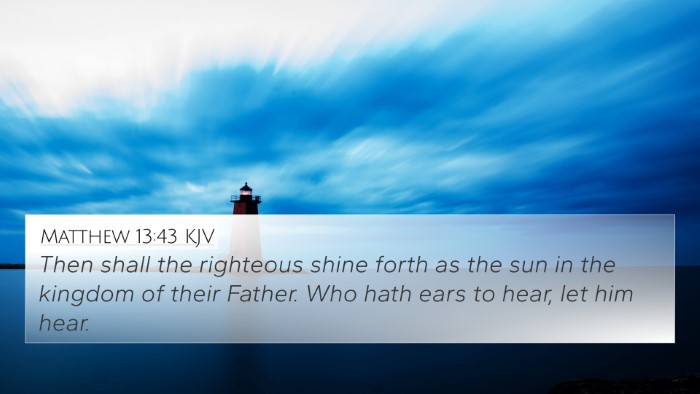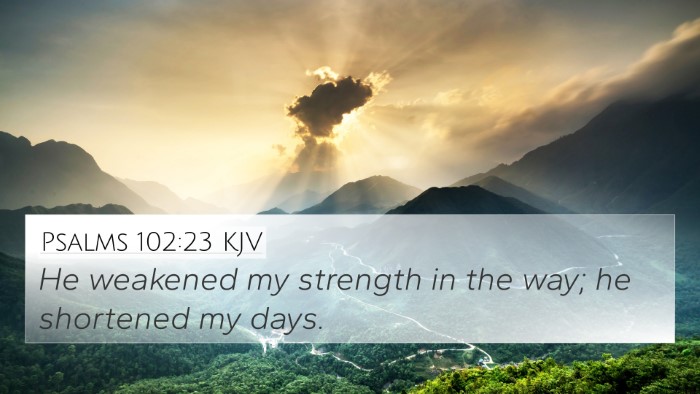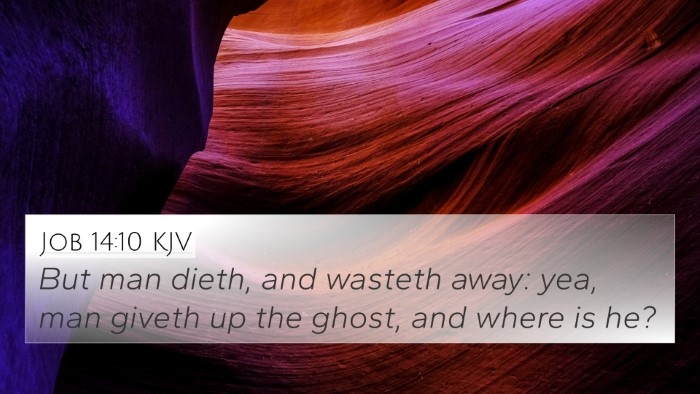1 Corinthians 15:43 states, "It is sown in dishonor; it is raised in glory: it is sown in weakness; it is raised in power." This verse addresses the transformation of the physical body into a resurrected body, emphasizing the stark contrasts between our earthly existence and the promised eternal life.
Meaning and Interpretation
The Apostle Paul is explaining the nature of resurrection and the glorious change that believers will experience. This transformation is rooted in the Christian hope of life after death, underscoring the fundamental belief in duality – the earthly and the heavenly, the mortal and the immortal.
Key Insights from Commentaries:
-
Matthew Henry:
Henry notes that the present body is characterized by dishonor and weakness—elements reflecting human frailty and sin. However, in resurrection, believers will experience glory and power, corresponding to the redemptive work of Christ, who overcame sin and death.
-
Albert Barnes:
Barnes emphasizes the contrast between the current, corruptible body and the incorruptible body that believers will receive. This transformation serves not only as an encouragement during earthly trials but also as a foundational tenet of Christian faith regarding life after death.
-
Adam Clarke:
Clarke elaborates on the necessity of this transformation, indicative of a divine plan. He asserts that the body, once buried in a state of dishonor, is not to be feared, as its resurrection is assured through Christ's victory over death, paving the way for believers to experience similar transformation.
Bible Cross-References:
- Philippians 3:21: "Who shall change our vile body, that it may be fashioned like unto his glorious body." This verse supports the theme of transformation from earthly to glorified states.
- Romans 6:5: "For if we have been planted together in the likeness of his death, we shall be also in the likeness of his resurrection." Illustrating the connection between Christ's death, our current experience, and future resurrection.
- John 5:28-29: "Marvel not at this: for the hour is coming, in the which all that are in the graves shall hear his voice." This emphasizes the resurrection promise corresponding to the transformative message in 1 Corinthians 15:43.
- 2 Corinthians 5:1: "For we know that if our earthly house of this tabernacle were dissolved, we have a building of God, an house not made with hands, eternal in the heavens." Reinforcing the distinction between earthly bodies and eternal glory.
- 1 Peter 1:23: "Being born again, not of corruptible seed, but of incorruptible, by the word of God, which liveth and abideth for ever." Linking the concept of decay with the promise of lasting life.
- Job 19:25-27: "For I know that my redeemer liveth, and that he shall stand at the latter day upon the earth." Job speaks of hope in resurrection and the physical existence post-death.
- 1 Thessalonians 4:14: "For if we believe that Jesus died and rose again, even so them also which sleep in Jesus will God bring with him." This verse connects to the central theme of hope in resurrection.
Connections between Bible Verses:
Various scriptures create a rich tapestry of encouragement for believers, linking different texts to the doctrine of resurrection. The collective teaching of these verses emphasizes that although physical existence is marred by weakness and dishonor, the promise of transformation awaits.
Understanding these Bible verse cross-references is vital for anyone engaging in Bible cross-reference study. During personal study, tools like Bible concordances and cross-reference guides can help illuminate how these verses interact and support each other.
How to Use Bible Cross-References:
- Identify Themes: Look for common themes between verses such as resurrection, glory, and eternal life.
- Comparative Analysis: Use a Bible cross-reference system to compare how different scriptures speak on similar topics, enriching understanding through context.
- Chain References: Create a Bible chain reference from one verse to others that deepen the exploration of biblical truth.
Conclusion:
1 Corinthians 15:43 offers profound insights into the Christian faith, articulating a transformation that encapsulates hope, power, and glory. Through cross-referencing related verses, believers can deepen their understanding of this pivotal doctrine and its implications for faith and life beyond the grave.
